Wooden stools: types, sizes and rules of care
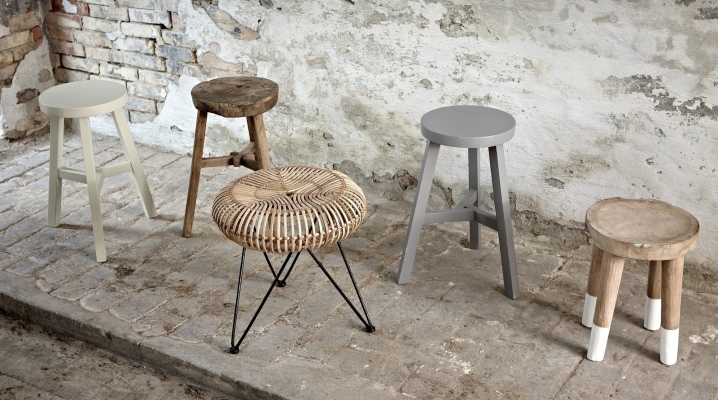
A wooden stool is a thing that can be found everywhere. The robust design not only perfectly copes with its main function, but also ennobles the space, suitable for almost any style of interior.
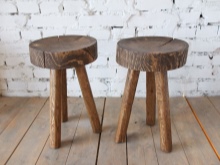
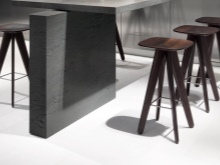
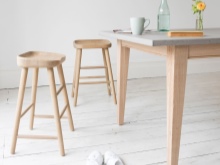
Advantages and disadvantages
Wooden stool is a kind of seating furniture made of wood. A characteristic feature of the design is the absence of a backrest and armrests, as well as rather miniature dimensions. However, the legs of bar stools have an impressive length. Wooden stools are used almost everywhere, both in apartments and in various public places. As for home use, such furniture looks appropriate in any room, from a balcony to a living room, which is one of its main advantages.
Wooden stools are reliable, highly durable, but lightweight. They are able to serve without interruption for tens of years, without even losing their aesthetic appeal.
Wood is an environmentally friendly material, which means that the choice of such furniture will not cause any harm to health, even if it is used to decorate a children's room. In addition, wood goes well with any other materials and is used in any interior style.
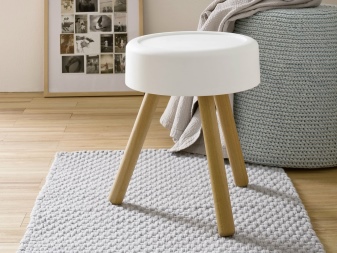
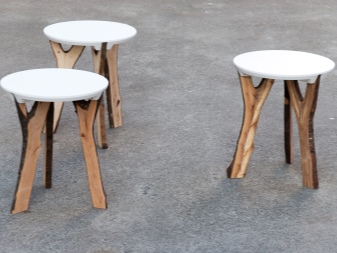
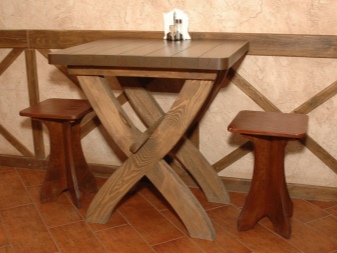
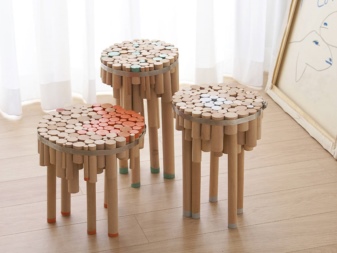
Compact models can be placed even in small spaces without cluttering up the space. Moreover, some of them are also multifunctional. In addition to seating, the stool can act as a bedside table or stand for a lamp or flowerpot. A shelf or built-in drawer provides additional storage space.
Nevertheless, wooden stools still have a number of disadvantages. The material requires special care, and also deforms when the humidity level and temperature conditions change.
For some people, the rather high cost of structures may also be a disadvantage. Again, the lack of a back is considered a subjective disadvantage, which deprives a share of the convenience of operation.
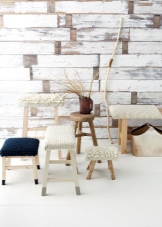
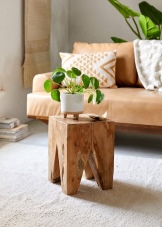
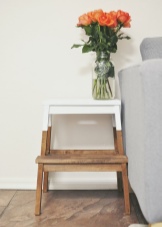
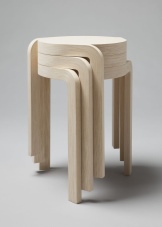
Species overview
All stools, regardless of the material of manufacture, can be divided into kitchen, bar, tourist, for playing musical instruments and with a special purpose. Besides, it is customary to distinguish two main classifications: stationary and folding.
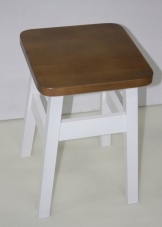
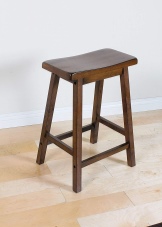
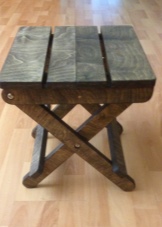
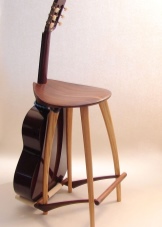
Stationary
Stationary stools include classic non-transforming models that have good stability. They can support even a lot of weight thanks to the presence of special parts that stabilize the frame. The simplest model has a seat and four legs. In the case when the model is a bar, it is equipped with an additional footrest.
Quite often, stationary stools are available with a soft seat or even a small box under the lid.
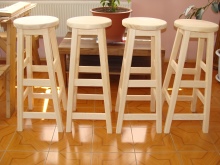
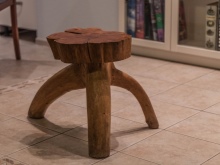
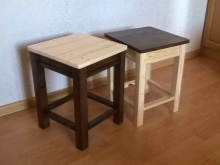
Foldable
A folding stool is indispensable in small apartments, as it allows you to significantly save space by removing seating devices only when necessary. Folding stools can be stored in the closet, on the balcony, between the refrigerator and kitchen set, or even just hanging it on the wall.The devices are characterized by low weight, the presence of a transforming mechanism and the inability to withstand a large weight. Some models are capable of transforming into a stool ladder, which is very useful in the kitchen.
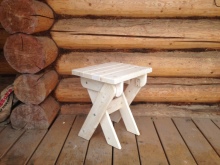
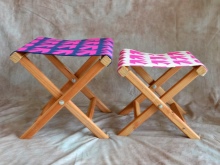
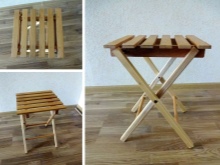
Variety of materials
The production of solid wood stools can be carried out using various species, which have both their pros and cons. Soft varieties include pine, aspen, spruce, linden and others. Elm, cherry, ash and walnut are of medium hardness. The most dense and reliable are oak, beech, maple and boxwood. While softwoods are most easily made from softwoods, they fail faster. In addition to hardness, when deciding on a material, one should take into account resistance to moisture and mechanical stress, as well as appearance.
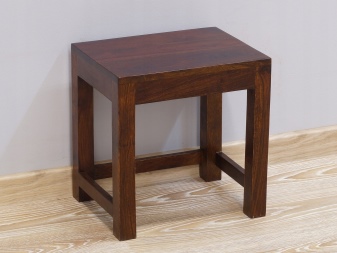
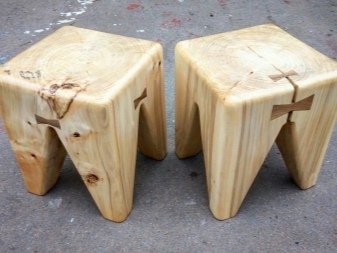
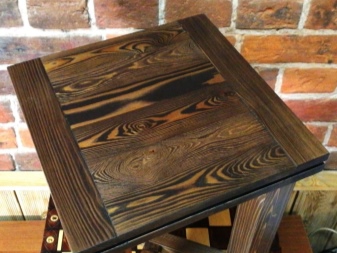
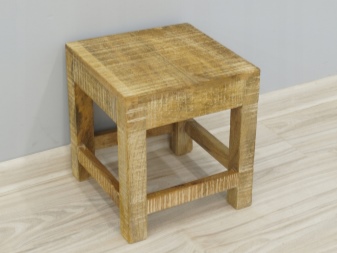
The best material for making wooden stools is oak. In addition to the strength of the variety, its obvious advantage is the variety of colors. The wood can be yellow, light red or grayish brown.
Oak products are quite heavy, but their surface can be decorated with delicate carvings. Often wooden stools are made of walnut, which has sufficient strength, but is easier to handle.
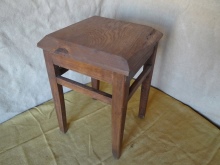
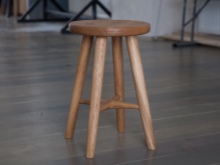
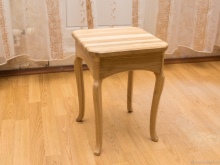
The absence of chips allows you to decorate the surface with a variety of patterns. The shade can be either light or dark, almost black tones. There are even reddish and purple variations. Pine is most often used in the manufacture of furniture, as it is easily processed and, if necessary, takes on any shade. Pine stools have a pleasant forest smell and are resistant to temperature and humidity changes.
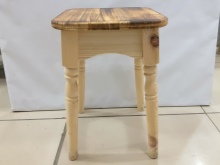
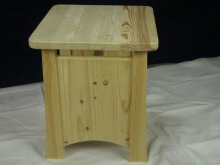
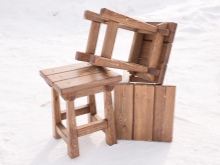
The advantages of larch are a sufficient number of possible shades - about 12 - as well as an aesthetic appearance. Steam-treated beech can be used to make curved parts. Nevertheless, the material quickly deteriorates under the influence of external factors.
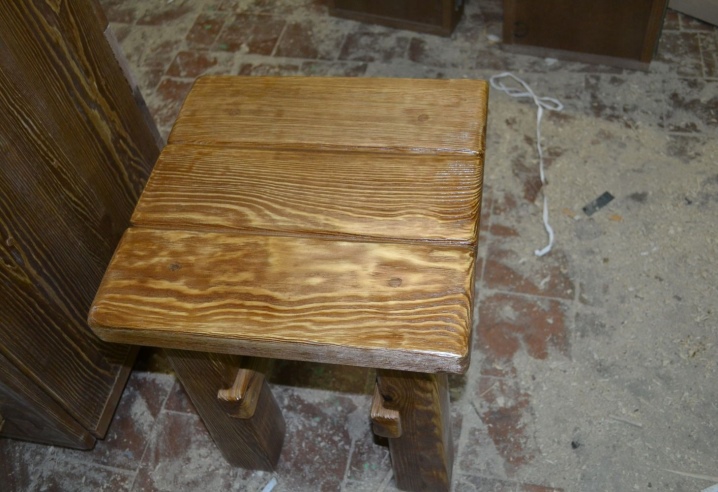
With the help of stain, snow-white linden can acquire any desired shade. Unfortunately, the material often becomes a target for pests, and therefore requires additional protection.
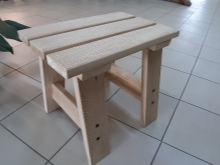
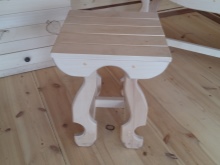
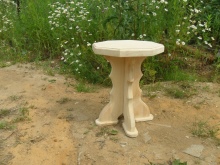
Fruit trees are not recommended for making stools, as they are of low strength. But ash, which is considered as reliable as oak, thanks to its natural aesthetics, allows you to create elegant and expensive-looking furniture elements.
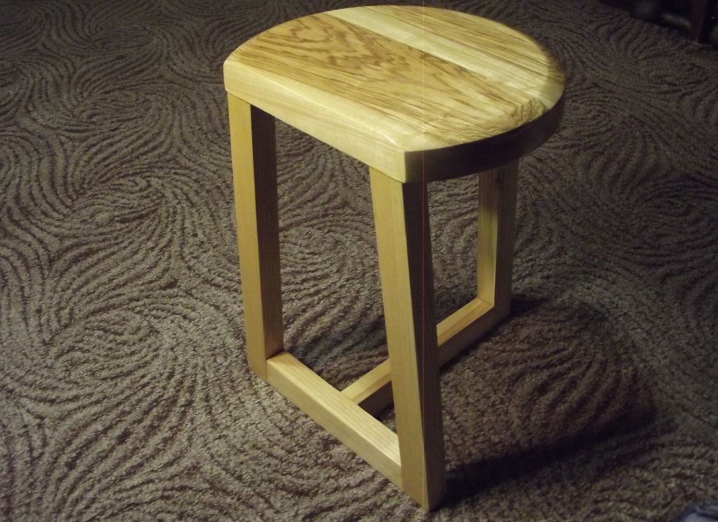
Usually, wooden parts are interconnected using two types of thorns: round and flat, as well as glue... The seat itself can also be fixed on self-tapping screws with recessed caps. It should be mentioned that recently stools are popular, the seat of which is a cross-cut of a tree. If the chosen style allows, then the furniture can be made from a single piece.
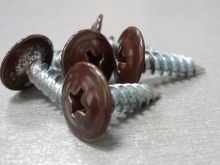
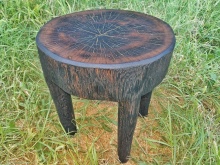
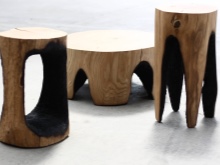
Shapes and sizes
In fact, most stools are quite classic in shape. The seating is usually flat and also either round or square, although concave designs are also present today. There can be four, two, three and even five legs. They are made as usual straight, twisted or crossed.
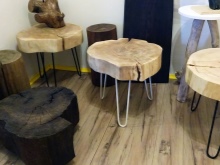
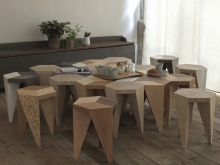

In straight structures, by the way, the edges can also be either sharp or rounded. As you might guess, the length of the legs also varies - a tall bar stool has the maximum, and the lowest are wooden stools designed for small children.
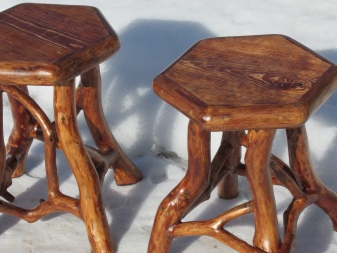
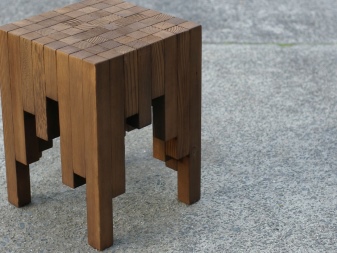
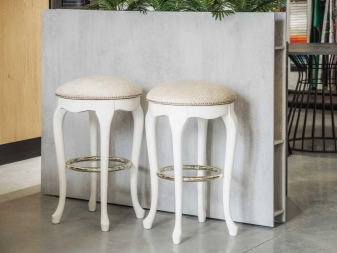
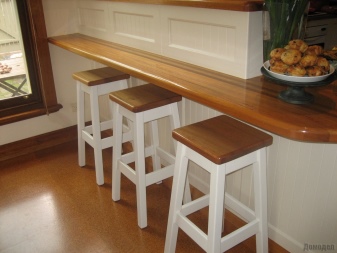
This type of furniture has different dimensions, which allows any buyer to choose a model for their specific parameters. For comfortable use, the height of the stool should correspond to the distance from the floor to the knees of a standing person, but the height of the kitchen table should also be taken into account. On average, this indicator varies from 42 to 65 centimeters. The width of the seat is adjusted individually, but it must be at least 36 centimeters.

Styles
The wood stool is a fairly versatile piece of furniture, suitable for several different styles at the same time. However, there are still some specifics. For a scandi or minimalism style, it is better to select models of a laconic form, made in white.
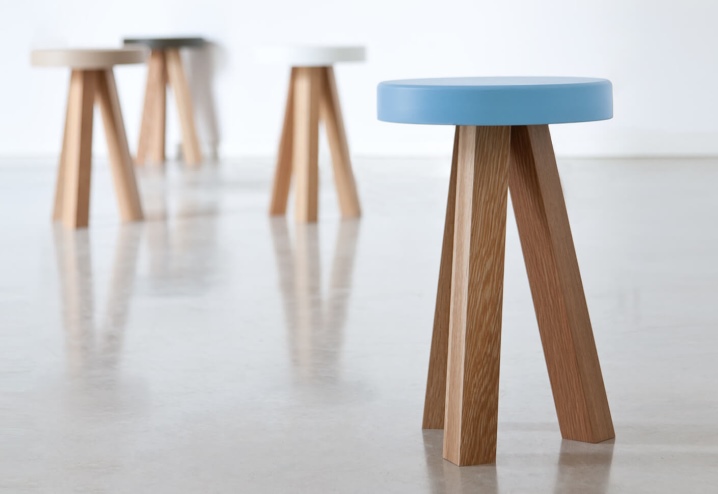
For loft style it is better to select samples with metal parts and, if the concept allows, with an artificially aged surface.
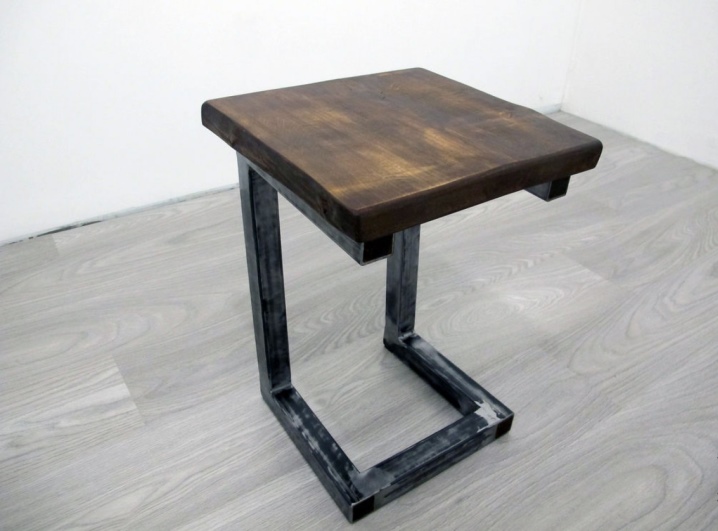
Provence style stool can be decorated with carvings, patterns and decorative fabric pillows.
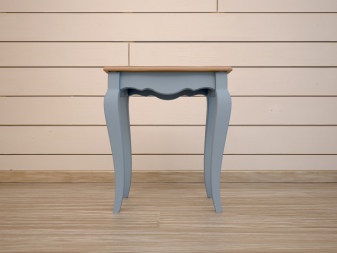
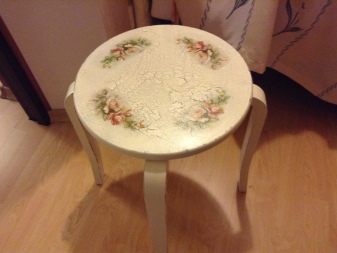
For a baroque or classic room it is better to choose upholstered stools with curved legs.
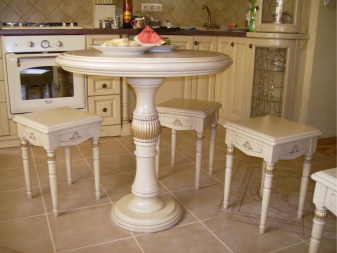
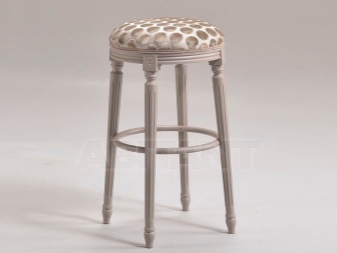
It should also be mentioned that an ordinary wooden stool can be made into a designer one using one of the decorating techniques. Carved structures are decorated with flat or volumetric graceful patterns, and the original mosaic models are covered with various images created from a large number of pieces. On a wooden stool, you can burn out a drawing or ornament, or squeeze out the pattern you like using a mold.
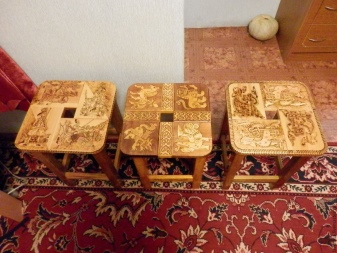
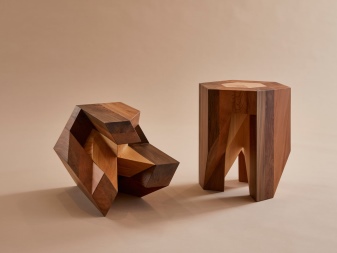
Care advice
In order for a wooden stool to look like new over the years, it is necessary to adhere to a number of rules for the operation of this furniture. The object must be located away from heating elements or sources of moisture, and also not be exposed to direct sunlight. The temperature in the room should not go beyond + 15-30 degrees, and the humidity should always remain at the level of 40-65%. In the event that a stool is purchased for a bathroom or bath, it is necessary to give preference to pine structures and take care of additional protection. Wood of any kind must also be protected from a wide variety of chemicals and sharp objects.
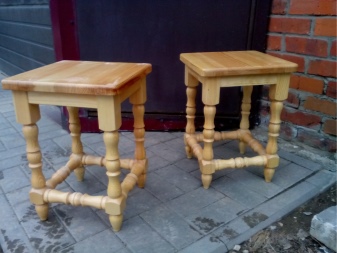
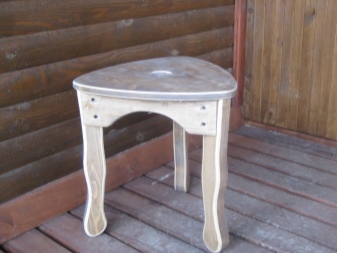
It is not recommended to leave hot or damp objects on the seat, as a rule, we are talking about dishes. If the liquid does get to the surface, it must be promptly wiped off. It is recommended to clean the furniture from dust with a dry soft cloth, and use a vacuum cleaner to care for the fabric upholstery. Removal of stains should be carried out using products intended for wood, or a mild soap solution. About once every five years, the stool will have to be treated with an antiseptic. In the presence of a folding mechanism, the device is from time to time oiled with machine oil or a suitable substance.
If small scratches appear on the stool, they can be removed with furniture wax or mastic. For more serious damage, you will need to remove the top layer, sand the surface with sandpaper and re-coat with paint or varnish.
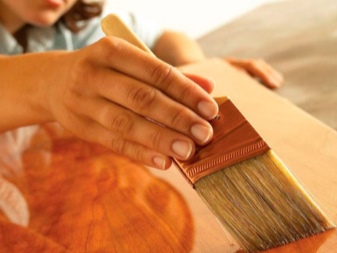
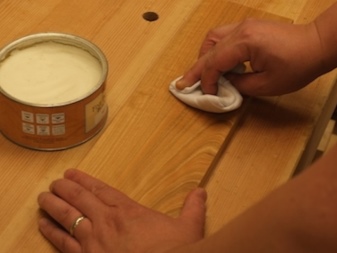
Beautiful examples
To decorate the kitchen in a classic style, it is better to select wooden stools in the color of the existing kitchen set or table. For example, processed mahogany wood looks quite noble. Simple in shape, the stool looks interesting thanks to the rounded corners and slightly curved legs that look the same as the legs of the table. Non-marking fabric upholstery is made in a color that is in harmony with the general palette of the room, and therefore does not violate the integrity of the environment.

For a more modern minimalist interior, wooden stools with an unusual concave seat are suitable for maximum comfort from use. Models with four legs are equipped with an additional foot bar. The calm natural shade echoes the shade of the surface of the kitchen island.

How to make a wooden stool with your own hands, see below.













The comment was sent successfully.